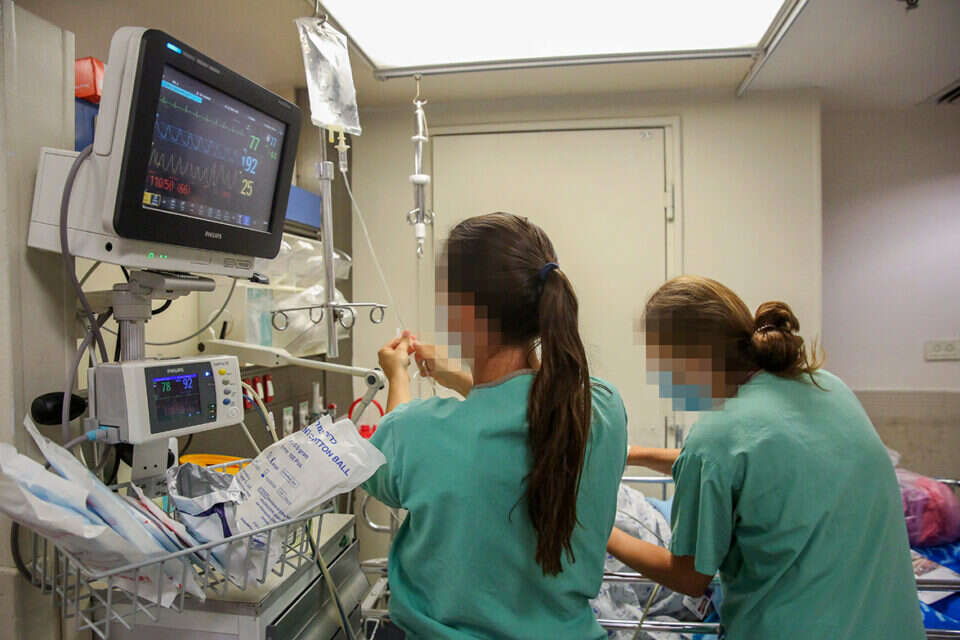The first academic study of its kind in Israel reveals the extent of the phenomenon of sexual harassment among religious nurses on the part of their patients. The study shows that about half of the nurses (51%) reported exposure to various types of sexual harassment at work during the past year. However, as the severity of the harassment increased, so did the frequency of the specific harassment.
Cumulative data show that the level of exposure of religious nurses to sexual harassment by patients is high, however, the more religious the nurse characterized herself, the less she reported harassment by patients;
Instead of reporting to the Nursing Department management, it turned out that the nurses chose not to complain and dealt alone with the traumatic event.
The study also shows that in hospital wards where the listening climate was high, nurses' exposure to sexual harassment was lower.
The climate of listening refers to listening to the patient and his understanding, empathy towards him and lack of judgment towards the patient.
This study is a continuation of a previous study on the same subject published in "Israel Today" and examined sexual harassment widely among all nurses.
A previous study from 2013, led by Dr. Ilya Kagan, head of the Department of Nursing at Ashkelon Academic College, examined the extent of sexual harassment by patients among all doctors, nurses and auxiliary staff in three hospitals, and the findings were very worrying: 69% of nurses and 62% of nurses Harassed during their work: 17% of the doctors and 12% of the nurses received an unprepared kiss, 37% of the doctors, 25% of the nurses and 21% of the auxiliary force were harassed in an attempt by patients to have sexual intercourse with them.
Dr. Kagan, Photo: From a family album
The new study further shows that the more religious the nurse characterized herself, the more she avoided therapeutic interaction with the patient who was harassing her.
It was found that 42% of the difference in the quality of care between patients is explained by the manner of employment and avoidance of a therapeutic relationship with the patient, which is found to be related to the level of religiosity of the nurse.
Hence, in sexual harassment both the nurse is harmed and the medical treatment of the harassing patient.
The new study was conducted by questionnaires given to nurses in advanced studies in nursing when the age of the nurses is between 22 and 64.
Each of the seasons for the questionnaire belongs to the traditional-religious or ultra-Orthodox stream.
The study's editor, Dr. Ilya Kagan, head of the nursing department at Ashkelon Academic College, said that "there are three circles of harm here.
The first circle is the nurse herself who is harmed by the harassment, the second circle is the institution that the care he provides is harmed because of the injury to the nurse, and the third circle is the patient himself, whose treatment goes down because of the harm he inflicted.
These circles must come to mind because they have a dramatic impact on the hospital, the staff and also the patient himself. "
In fact, in this respect sexual harassment on the part of patients impairs the nurse's ability to balance care provision and self-defense and creates an internal conflict regarding their role as caregivers - a conflict that leads to coping through maintaining distance from the patient.
Dr. Ilya Kagan concludes that the practical implications of the study are unequivocal: Dedicated reporting.
A reporting process that protects nurses in the work environment will ensure the quality of ongoing care, help alleviate conflict and keep nurses in the hospital. "
The study is published in the latest article in a series of articles on violence against nurses, by the research team: Dr. Sigal Tikva Shafran from Lev Academic Center and Hadassah Hospital in Jerusalem, Dr. Gili Gabay from Achva Academic College and Dr. Kagan, Head of the Nursing Department at Ashkelon Academic College .
Were we wrong?
Fixed!
If you found an error in the article, we'll be happy for you to share it with us

